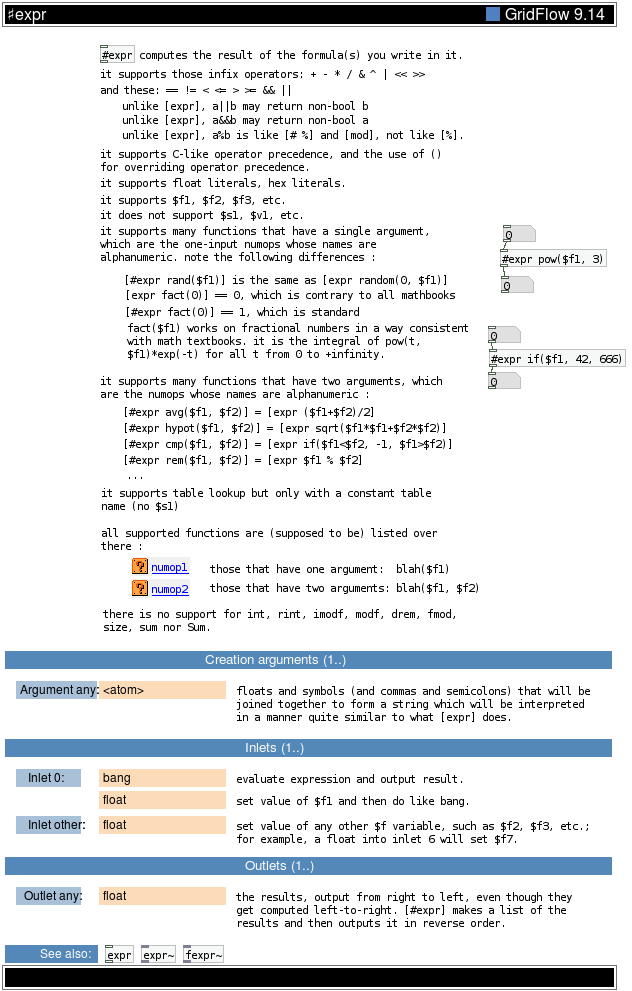
floats and symbols (and commas and semicolons) that will be joined together to form a string which will be interpreted in a manner quite similar to what [expr] does. evaluate expression and output result. computes the result of the formula(s) you write in it. it supports C-like operator precedence, and the use of () for overriding operator precedence. it supports float literals, hex literals. it supports those infix operators: + - * / & ^ | << >> and these: == != < <= > >= && || unlike [expr], a||b may return non-bool b unlike [expr], a&&b may return non-bool a unlike [expr], a%b is like [# %] and [mod], not like [%]. it supports $f1, $f2, $f3, etc. it does not support $s1, $v1, etc. set value of $f1 and then do like bang. set value of any other $f variable, such as $f2, $f3, etc. ; for example, a float into inlet 6 will set $f7. the results, output from right to left, even though they get computed left-to-right. [#expr] makes a list of the results and then outputs it in reverse order. [#expr rand($f1)] is the same as [expr random(0, $f1)] [#expr avg($f1, $f2)] = [expr ($f1+$f2)/2] [#expr hypot($f1, $f2)] = [expr sqrt($f1*$f1+$f2*$f2)] [#expr cmp($f1, $f2)] = [expr if($f1<$f2, -1, $f1>$f2)] [#expr rem($f1, $f2)] = [expr $f1 % $f2] ... it supports table lookup but only with a constant table name (no $s1) those that have two arguments: blah($f1, $f2) blah($f1) those that have one argument: all supported functions are (supposed to be) listed over there : [expr fact(0)] == 0, which is contrary to all mathbooks fact($f1) works on fractional numbers in a way consistent with math textbooks. it is the integral of pow(t, $f1)*exp(-t) for all t from 0 to +infinity. [#expr fact(0)] == 1, which is standard it supports many functions that have two arguments, which are the numops whose names are alphanumeric : it supports many functions that have a single argument, which are the one-input numops whose names are alphanumeric. note the following differences : there is no support for int, rint, imodf, modf, drem, fmod, size, sum nor Sum.